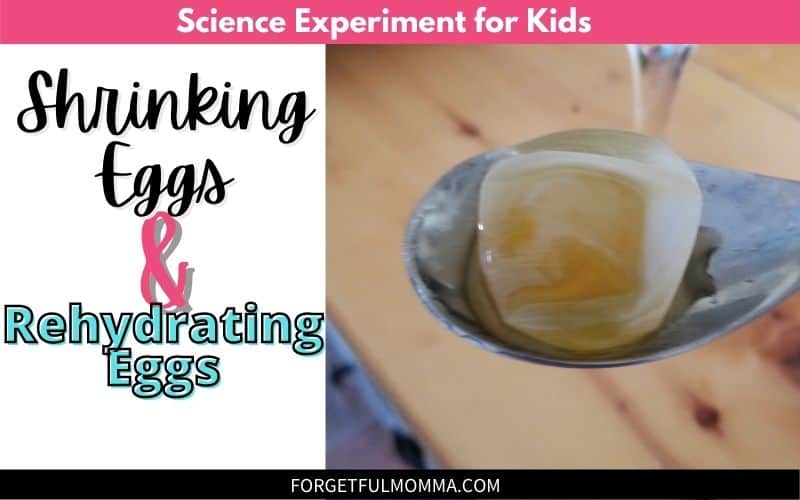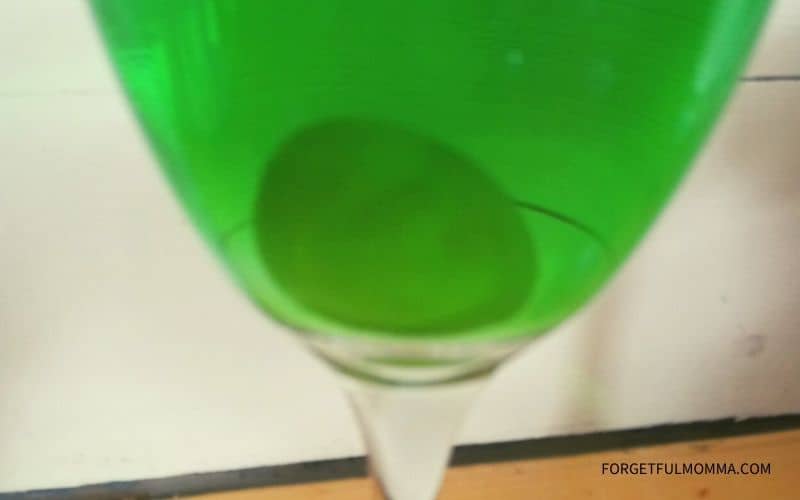We have an abundance of eggs. With the number of chickens and quails though that is to be expected. So what shall we do with the extra eggs? A shrinking egg science experiment of course! It was much easier to shrink an egg than I ever thought possible.

This post contains affiliate links, see my disclosure policy for more information.
Shrinking Egg Science Experiment
Part one of this experiment is to remove the shell from the egg, without the egg breaking of course.
You can learn more about how to do this and making your egg quite bouncy in this science experiment.
You have soaked your egg in vinegar for at least 24 hours now and rinsed the remaining eggshell off gently under running water.
Now you are going to soak it in corn syrup for about 24 hours. The egg floated to the surface but it didn’t affect the experiment. It won’t take long to see the effect that the corn syrup has on the egg. Within a couple of hours, you’ll see a difference.

The Science Behind It
Corn syrup is very sugary with a little water dissolved in it. When we came back the next day, we could see the egg had shrunk and the corn syrup had a thinner layer on top. This was where the water left the egg, causing the shrinking.
When you put a naked egg in corn syrup, you are creating a situation where the egg membrane separates two solutions with different concentrations of water. The egg white is about 90% water; corn syrup is about 25% water.
In this situation, random movements of water molecules cause them to move from the side of the membrane where they are more abundant to the side where they are less abundant. The water in the egg will move from the area of higher density through the membrane to the corn syrup until the density is the same on both sides.

Rehydrating A Shrunken Egg
It won’t take long to see the effect that freshwater has on the shrunken egg. Within an hour, you’ll see a difference. The egg will start to absorb water back into itself. We used food color in the water to see a better demonstration of it.
DIY Bath Bombs Without Citric Acid
